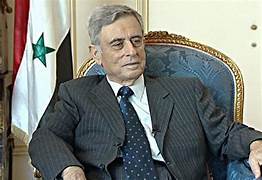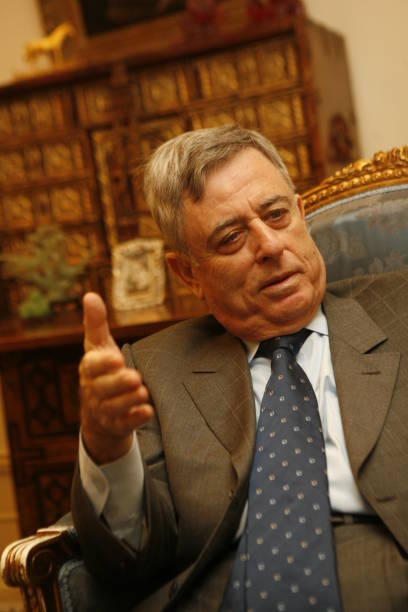Former Syrian Vice President Abdul-Halim Khaddam, in an interview with “Russia Today,” emphasized that Syria is in an extremely dangerous situation, and Bashar al-Assad is driving the country into sectarian conflict, which will not only engulf Syria but the entire region.
“I warn that the continuation of this regime will pose dangers to the security and stability of the region and to the interests of countries related to economic and security relationships in the region. The other danger lies in the disintegration of Syria because the disintegration of Syria means the disintegration of other countries in the region such as Iraq, Lebanon, and Egypt. Therefore, all parties keen on the security and stability of the region should stand by the Syrian people and contribute to a military action to overthrow this regime,” Khaddam said.
Khaddam pointed out that former Syrian President Hafez al-Assad established a strong security system built on a non-national structure, explaining that “because it was not allowed for segments of the Syrian society to enter military colleges, it was limited to a few Baathists only, while 90% of others belonged to the segment to which Hafez al-Assad belonged. In contrast, there are large numbers of this segment that opposes this regime and fights the idea of sectarian state and the idea of drifting into civil war. That is, we cannot say that all members of the Alawite sect support Bashar al-Assad. If these events had happened while I was in power, I would have left the government if I could not change the compass direction.”
He added, “The Syrian people were silenced by an unparalleled security apparatus in the region, where there was constant suppression, prisons, and killings met with hatred and resentment. There was fear of the explosion of this resentment and fear of the regime using the force it possesses to destroy the country.”
Khaddam said, “The regime is over and cannot continue because it faces a real popular revolution not led by a political party, leader, or group. It is a revolution initiated by the people because they can no longer tolerate injustice and oppression. The opposition did not have a relationship with the revolution at its inception. They came to support the revolution and adopt its slogans, as some of them aspire to reach power. The Syrian people will not be subdued; they will resist, fight, and defend themselves until the end.”
In conclusion, Khaddam emphasized that the Syrian revolution is a national revolution facing a regime with the second-strongest army in the region. It also confronts an Iranian-Russian alliance seeking control over the region. The Syrian people are not confronting Bashar al-Assad; they are facing the military might of Russia, which is making a grave mistake by supplying weapons to Bashar al-Assad to massacre the Syrian people. This will have future consequences in the region after the fall of the regime.




